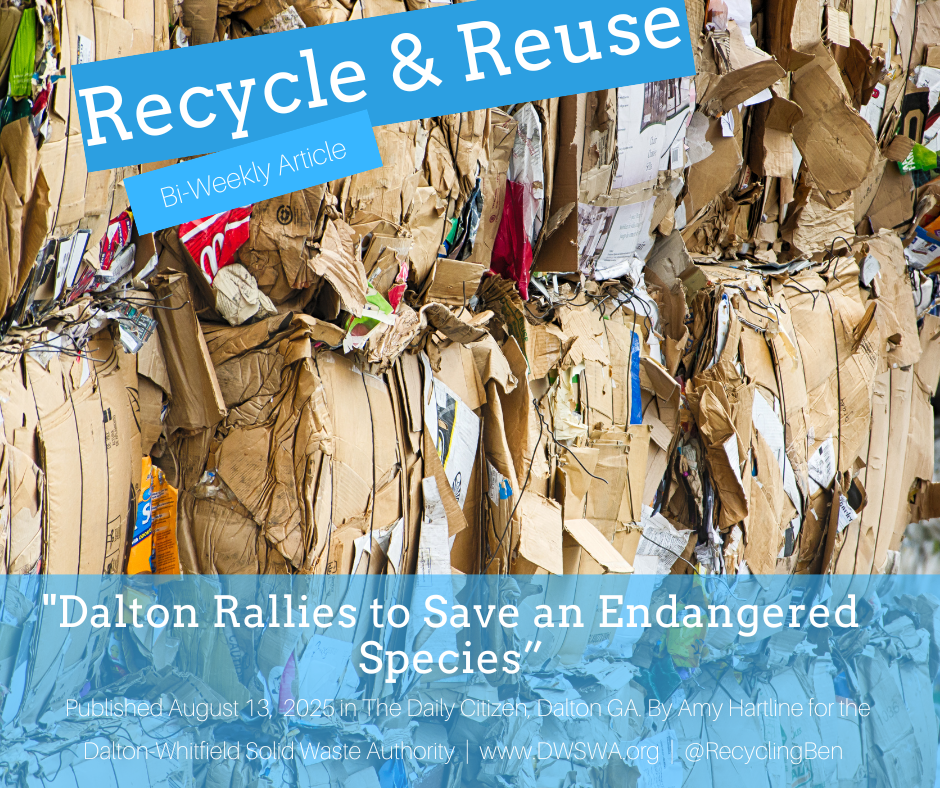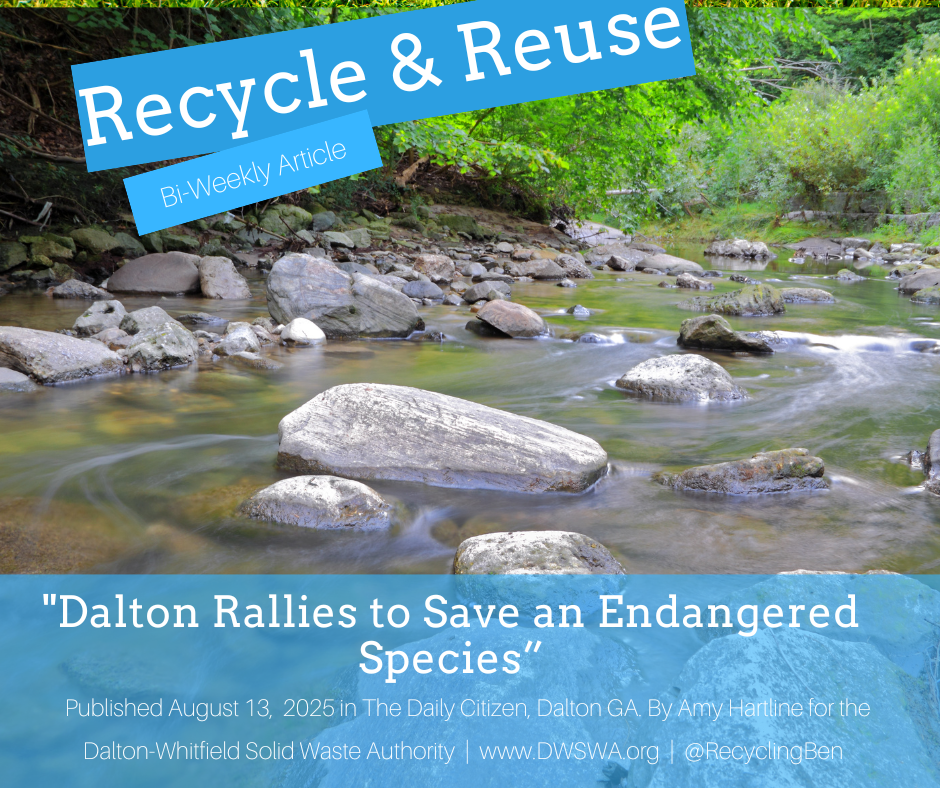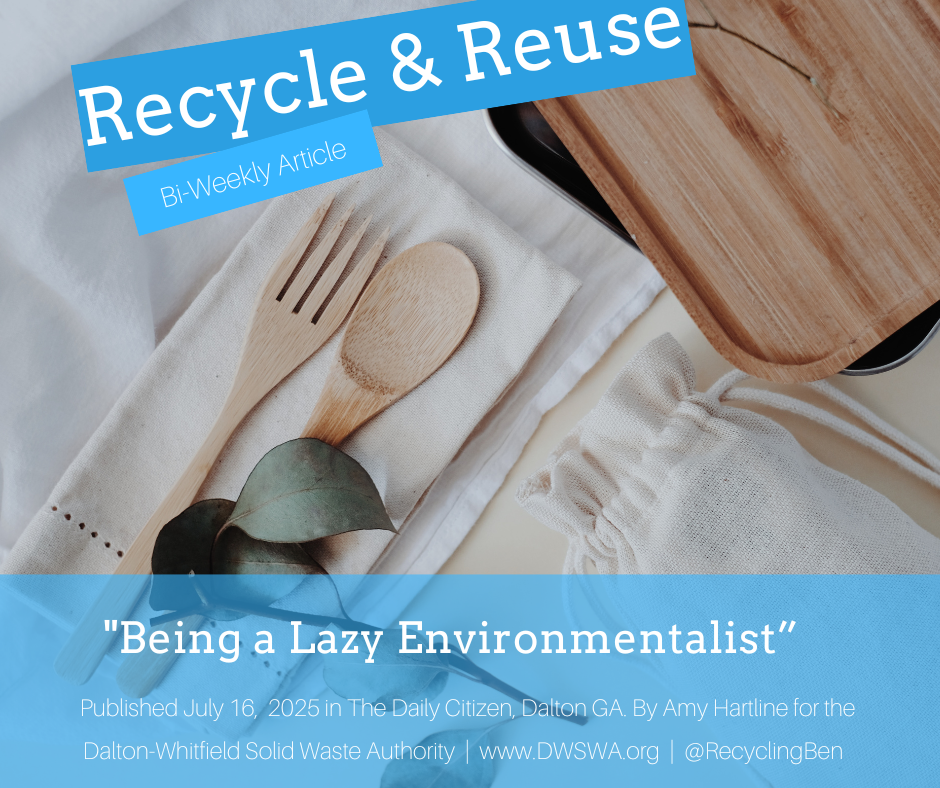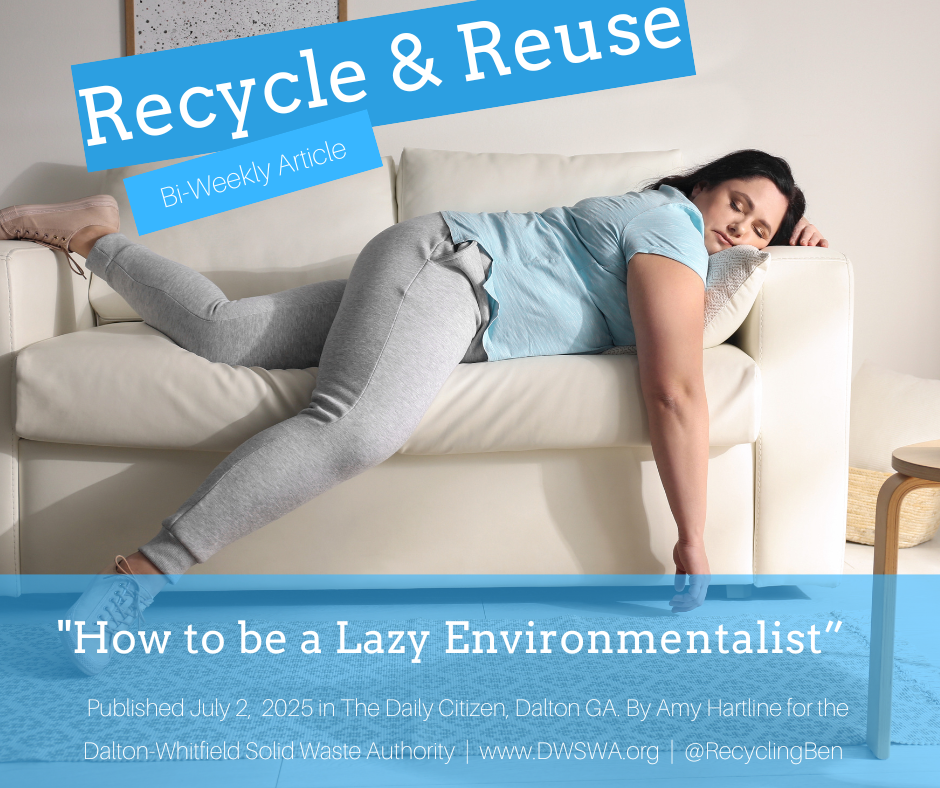Things Learned From Writing 'Recycle & Reuse'
/Recycling plastic bottles helps conserve natural resources and supports manufactures in Georgia which leads to more jobs.
Since September 2012 I’ve been writing this weekly column, Recycle & Reuse, in an effort to educate our community about recycling and living an environmentally friendly lifestyle. When I began I wasn’t sure I would have enough things to write about each week. Thankfully, two-hundred articles later, I’m still here sharing what I have learned with you. Here are some of the key ideas I’ve discovered after almost four years of writing.
Trash is not really trash, it’s a resource. On average about three-quarters of what you throw away can be recycled or composted and doesn’t need to go into a landfill at all. Americans produce 4.35 pounds of waste per person per day – that’s a lot of material that has to go somewhere. Considering that so much of our waste can be used for other purposes it just makes sense to use trash as a resource whenever possible. When we see our trash as something useful the relationship we have with it changes.
Instead of waste, we can see a possibility. Creativity abounds when you see multiple purposes for discarded materials. Those leftover coffee grounds and carrot tops are no longer a waste, they are part of a compost pile that will become a beneficial soil amendment for our garden. A shoebox is no longer something to be thrown away, it can be recycled or even reused as a storage box for toys. A milk carton can be transformed into a bird feeder or a glass bottle into a flower vase.
Next time you’re about to throw away a plastic water bottle take a moment to think about all the new things manufacturers can make with it. If you choose to put that bottle in the recycling bin instead of a trash can it will have another life as part of a t-shirt, carpet, or a playground. When we consider that one-third of all plastic beverage containers recycled in North America get recycled in Georgia, recycling your bottle actually helps create jobs. With Georgia having the second largest market for recyclable materials, recycling is an easy way to have an economic impact.
After you begin to see your waste as a potential resource, and really begin to reuse and recycle everything you can, it’s only natural to question the amount of stuff you have at home. Hopefully, you’ll come to the conclusion, just as I have, that owning more stuff does not equal happiness. Instead, owning less stuff leaves more room for the things that really matter: more time to spend with family and friends, less or no debt from all the money you’ll save by not purchasing things, less clutter and more space to focus and distress at home. I encourage you to invest in experiences, not things.
Beyond the topic of recycling and waste management, I’ve also learned that going outside is very important for people of all ages. Going to a local park, hiking, bird watching, and playing sports outdoors all contribute to our physical and mental health, and overall quality of life. Being outdoors also connects us to nature. The disconnect from nature is now identified as nature-deficit disorder, a term coined by author Richard Louv. It’s a real issue with implications for our health and the future of the planet.
Frankly, people care about things they know. A Cambridge study famously found that children were much better able to identify Pokémon characters than native species of plants and animals. How can we expect others to care for the environment, wildlife, and the health of the planet when they can’t even name the ones in their own backyard? How can we convince others to improve the water quality of the Conasauga River to help fish like the Conasauga logperch and blue shiner, which are threatened species, if they’ve never seen one or know how they fit into the ecosystem?
As part of my job, I have the privilege of visiting local schools and hosting some of them for tours of the recycling center and landfill facility here in Whitfield County. The greatest joy I experience on the job is interacting with students that know more, and care more, about the environment. These come in all ages - from preschoolers that already recognize that littering is wrong, and elementary students growing their own veggies, to college students eager to find better alternatives to managing waste. Seeing students who understand their actions can have a positive impact on this planet we all share gives me hope for the future.
Liz Swafford is the Recycling and Education Program Coordinator for the Dalton-Whitfield Solid Waste Authority. Contact her at 706-278-5001, or e-mail lswafford@dwswa.org.
































